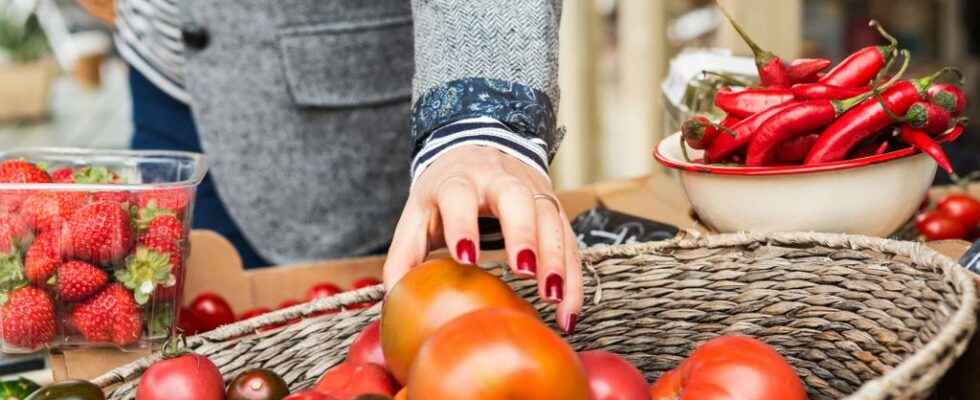[DIAPORAMA] Organic foods often cost more than others. To find the right balance in your wallet and track down pesticides, which foods should you prioritize? Here are some products to put on your shopping list, organic farming department!
For years, the market for organic products has been progressing, with habits and consumption patterns changing over time. Large retailers have rushed into the sector since the organic market represents, in 2019, 12 billion euros (twice as much as in 2015)!
For her, the gross margin of an organic food is up to twice as high as in the traditional version: an opportunity to be seized, which operates to the detriment of producers and does not apply fair trade. We thus see the supply and demand for organic products in supermarkets progressing significantly. In 2019, the National Federation of Organic Agriculture (FNAB) also protested against the industrialization of the organic sector which has now reached France. Because this “industrial” bio is a paradox : certainly, it makes it possible to reduce prices – the main obstacle to purchase for 80% of consumers -, but the drift towards “anything labeled organic” is not far away.
However, consumers seem to be better and better informed and while mass distribution remains the most used purchasing channel, its share decreased in 2019 (77% versus 81% in 2018), to the benefit of craftsmen, the market, local shops and direct purchases from producers. The image of organic products from distributor brands is also down (with a score of 5.7/10), as is the desire of consumers to find more organic products in their supermarket (4% drop).
What motivates consumers to buy organic?
- 59%: to preserve their health
- 51%: for the quality and taste of the products
- 45%: to preserve the environment
- 34%: for animal welfare
- 34%: thanks to the greater availability of organic products in the usual places of purchase
And what prevents them…
- 80%: overpriced products
- 66%: a doubt that the product is totally organic
- 29%: not the reflex to consume it
- 25%: has its own vegetable garden or shares land to cultivate
- 24%: offer that does not meet needs
- 18%: due to lack of information
To eat organic without breaking the bank, here are a few tips: replace animal protein with vegetable protein from time to time, favor seasonal and local foods which will be cheaper than others, buy the right quantities (according to Ademe, on average 7 kg of food are thrown away per year and per inhabitant.Finally, make choices, by buying the food in this slideshow as a priority.
Source :
Loading-widget
Loading-widget
Subscribe to the Top Santé Newsletter to receive the latest news for free
